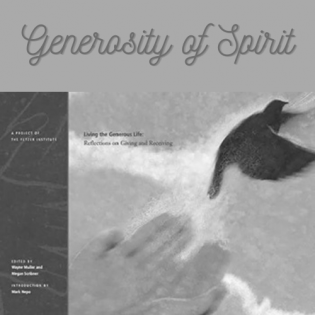Chinese Folktales
Sometimes you have to give up what you truly love to get what you really want. That can be a hard lesson when you have almost nothing. This lesson looks at who has the responsibility to be generous and what changes can come about because of one’s generosity.
The learner will:
- identify the historical and geographic settings of folktales.
- identify the message and connections to philanthropy.
Youth access to these folktales (Learning to Give has permission to make these folktales available online to readers):
- Lord of the Cranes: A Chinese Folktale. Retold by Kirsten Chen. (New York and London: North-South Books, 2000).
- "Lo-Sun, the Blind Boy". Originally published in Chinese Fairy Tales by Norman Hinsdale Pitman by Thomas Y. Crowell Co., 1910.
Instructions
Anticipatory Set:
Ask the learners to imagine something they would like to have so much that they would be willing to make a sacrifice to get it. Then ask them to think of something they have that means "the world" to them. What would happen if they had to give up the thing they loved to get the thing they desired?
The featured stories come from China. On a map, locate China’s absolute location (longitude and latitude) and relative location. Describe China by listing recognizable physical characteristics and human characteristics.
Read "Lo-Sun, The Blind Boy" together and discuss the message and connection to philanthropy.
- How did Lo-Sun learn to become generous? What were the lapses in Lo-Sun’s behavior, and why are they important to the story?
- Lo-Sun felt, because he was blind and a beggar, that he did not have to give to others who were beggars. Are only the healthy and wealthy obliged to give to others?
- Would Lo-Sun have sent his dog into the water if he had known the man was his cruel father?
- If Lo-Sun had only regained his sight but not been reunited with his father, would the story still have had a good conclusion?
- Think about when you have given to others, have you noticed a change in yourself? What was it?
Read "Lord of the Cranes" together and discuss the message and connection to philanthropy.
- Discuss the details and message of the folktale.
- Was the use of cranes symbolic or could another animal have been substituted?
- What was Tian’s motivation for becoming a beggar? Why did he test Wang over a period of months?
Using a Venn diagram compare Lo-Sun from the first story and Wang from the second story.
Philanthropy Framework
-
Strand PHIL.II Philanthropy and Civil Society
-
Standard PCS 01. Self, citizenship, and society
-
Benchmark HS.2 Discuss and give examples of why some humans will sacrifice for the benefit of unknown others.
-
-
